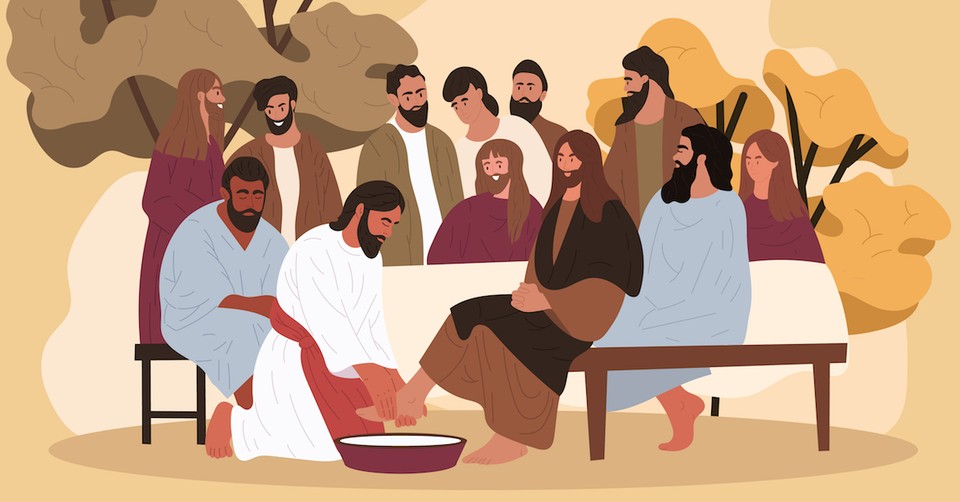3 Reasons the Disciples' Ages Are Important

Our mental images of the 12 disciples have more than likely been influenced by what we’ve seen in books, paintings, movies, and television shows, which depict them as heavily bearded, close to middle age, maybe with a paunch and a few wrinkles about the eyes.
Are such images true portrayals, though, or have illustrators, painters, and Hollywood through the ages taken creative license? In truth, these chosen few were actually quite young, in their early twenties and teens, maybe even as young as 12 or 13. A more accurate picture, then, would be that of the Twelve as pubescent boys with pimples and peach fuzz.
How Do We Know Their Ages?
How can we know? From certain clues found throughout Scripture, starting first with the Twelve’s relationship with Jesus, as disciples (“learners”) to a Rabbi. Initially, their relationship was akin to that of high school students to a beloved teacher, eagerly soaking in the higher knowledge imparted by the one in greater authority. In fact, the disciples often referred to themselves as “pupils” and to Jesus as “Teacher” (Matthew 10:24, 13:13, 17:10; Mark 4:34, 9:31; Luke 11:1; John 12:16).
This theory is supported by what was the customary pattern of educating Jewish boys in ancient Israel. According to the Mishnah, oral interpretations of the Torah, the pattern was that male children began their schooling at a very early age and concluded it in their mid-teens. “At five years old [one is fit] for the Scripture, at ten years the Mishnah, at thirteen for the fulfilling of the commandments, at fifteen the Talmud [making Rabbinic interpretations], at eighteen the bride-chamber, at twenty pursuing a vocation, at thirty for authority [becoming a Rabbi, able to teach others].”
Traditionally, at 15 years of age, a boy was done with his Torah training. Only those who showed exceptional promise at the conclusion of their training were invited to continue under the tutelage of a prominent Rabbi, until the age of 30 (like Saul with Gamaliel, Acts 22:3). Rabbis preferred discipling youths since they did not yet have a home or work responsibilities and could devote their time and attention to their teaching.
Those, however, not chosen by a Rabbi for continued instruction would take up a “vocation” and eventually get married, as was the case with Peter, who was a fisherman and married, which means he was at the very least 20 years old.
Likely following this educational pattern, Jesus called teenage boys and young men who had already finished their education (maybe even recently) and were working at their chosen “vocations”—as fishermen, in the case of James, John, Peter, and Andrew, as a tax collector, in the case of Levi/Matthew (Matthew 4:21-22, Luke 5:27-32). We can assume, though, that since they were working men that none of them had been “chosen” by a Rabbi to continue in Torah instruction; thus, they were prime (and available) candidates for Jesus and his invitation.
Other circumstantial evidence as to their youthfulness can be inferred from their juvenile behavior and immature interactions with each other: their boyish competitive natures and childish arguments about who was the greatest (Luke 22:24-30), the nicknames for James and John, “Sons of Thunder,” referring possibly to their brash and boyish characteristics (Mark 3:17), Peter’s impetuousness and rash words (Matthew 16:21-28; Mark 14:29; John 1:15-27), and finally their impulsive, reckless abandonment of Jesus at the hour of his greatest need (Mark 14:43-50). All of these speak to the immaturity of youth.
Then there are several instances in Scripture, as well, where Jesus refers to the disciples as “little children,” possibly referencing their youth (Matthew 11:25, Luke 10:21, John 13:33). Would he really call adult men “children”?
But why are the ages of the disciples important? Do they carry any real significance? I believe so, and here are three reasons why.
1. Jesus chose those who were still malleable and teachable
The young have a greater curiosity to explore and to question. They tend to be less biased and possess an eagerness to learn and the willingness to accept new teachings and instructions. Young people are also open-minded and tend to be less jaded when it comes to those in authority. Adults, on the other hand, due to life and personal experiences, tend to be more skeptical, biased, jaded, close-minded, and disbelieving.
Scientific studies have proven, as well, that the young are more adept at learning than adults. This is due to the fact that their prefrontal cortices are still developing, and they have more “brain plasticity,” which makes their brains more flexible for learning. “They’re like little sponges,” is often said of young brains, implying that they quickly and easily absorb information, knowledge, and skills and retain them better than adults. Also, the young have not yet experienced cognitive degeneration, which comes as the brain ages.
The young are also highly impressionable and, thus, make for enthusiastic followers, which can be both good and bad. In the disciples’ case, it was positive, and they proved to be eager participants, willing to carry out their beloved Teacher’s instructions.
2. Jesus chose those who would most certainly outlive him
Jesus sovereignly and purposefully chose teens and young men whom he knew would outlive him. This was important because they needed to evangelize throughout the known world then, thus fulfilling the Great Commission (Matthew 28:18-20), and to establish God’s kingdom (the Church) on earth, which we see fulfilled in the Book of Acts and beyond.
Below are the approximate ages of each disciple at the time of their deaths:
James, the brother of Jesus: age 48
Andrew, Peter’s brother: age 55
Paul, the Persecuted: age 60
Thomas, the Doubter: age 61
Peter, the Rock: age 65
Simon, the Zealot: age 65
Bartholomew: age 68
Philip: age 76
Matthias, Judas’ replacement: age 79
John, the disciple whom Jesus loved: age 93
Matthew: age unknown
In dating their deaths, we see that most of the disciples-turned-apostles indeed outlived Jesus by as few as three decades and as many as 70, in John’s case. And all those decades were spent ministering on the Lord’s behalf, which was God’s sovereign intent. God knew, in human terms, that it would take a long time for these men to “go and make disciples of all nations, baptizing them…teaching them to obey.”
3. Jesus chose those who had time to grow in wisdom and authority
Because of their youth when Jesus called them, the Twelve had time on their side. Just like they had decades in which to minister, they had the time to learn from their successes and failures along the way. All that lent to their growth in knowledge and wisdom, which they imparted to the next generation of disciples, evangelists, and church leaders—the apostolic fathers: Linus, Clement, and Polycarp, who is thought to have been a direct disciple of John’s.
Old age also gave the apostles authority. Who else but the earliest eyewitnesses of Jesus’ ministry and then through their own hard-earned experience, garnered through adversity and persecution, would have the authority to accurately narrate the life and work of their beloved Master, all in 33 books and letters?
Hindsight is 20/20, it’s said. These 12 older men—now heavily bearded, wrinkled, and stooped with age—were, after decades of faithful service, able with clarity to evaluate the past through the lens of shared and lived experiences.
Conclusion
While the disciples’ ages at the time of their callings may, at first glance, seem insignificant, they actually carry great importance and weight in the story of Jesus, His mission, and the Church. Their ages also tell us as parents to be mindful and diligent to “train up” our children in the ways of the Lord, because, even as youths, they have the great potential and capacity to do much in the service of God and his kingdom.
Photo Credit: Rudzhan Nagiev

Originally published January 20, 2023.







